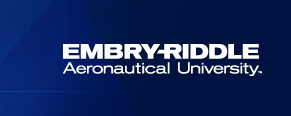Prior Publisher
Embry-Riddle Aeronautical University
Abstract
Efficiency in higher education has increasingly come under scrutiny as student debt levels continue to increase and the quantification of the value provided to students by colleges remains elusive. Collegiate flight training operations are especially subject to such scrutiny, due to their expense and to continued below-average entry-level salaries in the airline industry. This research examines an inductive learning approach combined with a flipped classroom, whereby aviation management students in a large Midwestern collegiate aviation program analyzed the operational efficiency of their primary flight training operation and recommend potential solutions and means of implementation. Such an approach provides multiple benefits. The resulting improvement in scheduling efficiency results in better use of existing capacity, and can be utilized to allow additional students to matriculate in the program, subsequently reducing student fees for all enrolled students by spreading fixed costs over a wider customer base. In addition, the management students participated in the development and implementation planning of empirical solutions to the problem, thereby addressing a call from industry to incorporate practical projects in the classroom to achieve greater comprehension and retention of subject matter. A number of alternative assessment methods (Frank & Barzilai, 2004), including semi-structured student interviews, surveys, peer evaluations, and analysis of deliverables, were utilized, and these indicated that classroom engagement and subject matter retention was improved by the delivery methods that were employed.
Scholarly Commons Citation
Mott, J. H.,
&
Bullock, D. M.
(2015).
Recommendations For Improvement Of Collegiate Flight Training Operational Efficiency Through Guided-Inquiry Inductive Learning.
International Journal of Aviation, Aeronautics, and Aerospace,
2(4).
DOI: https://doi.org/10.58940/2374-6793.1089
